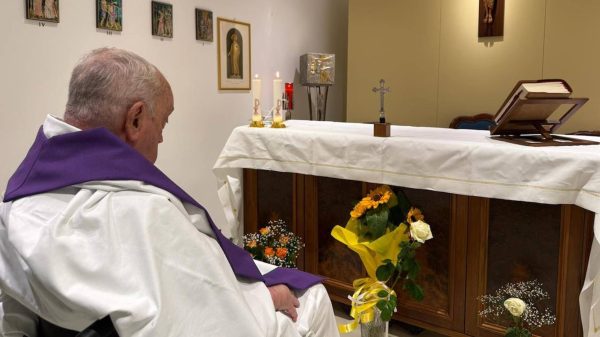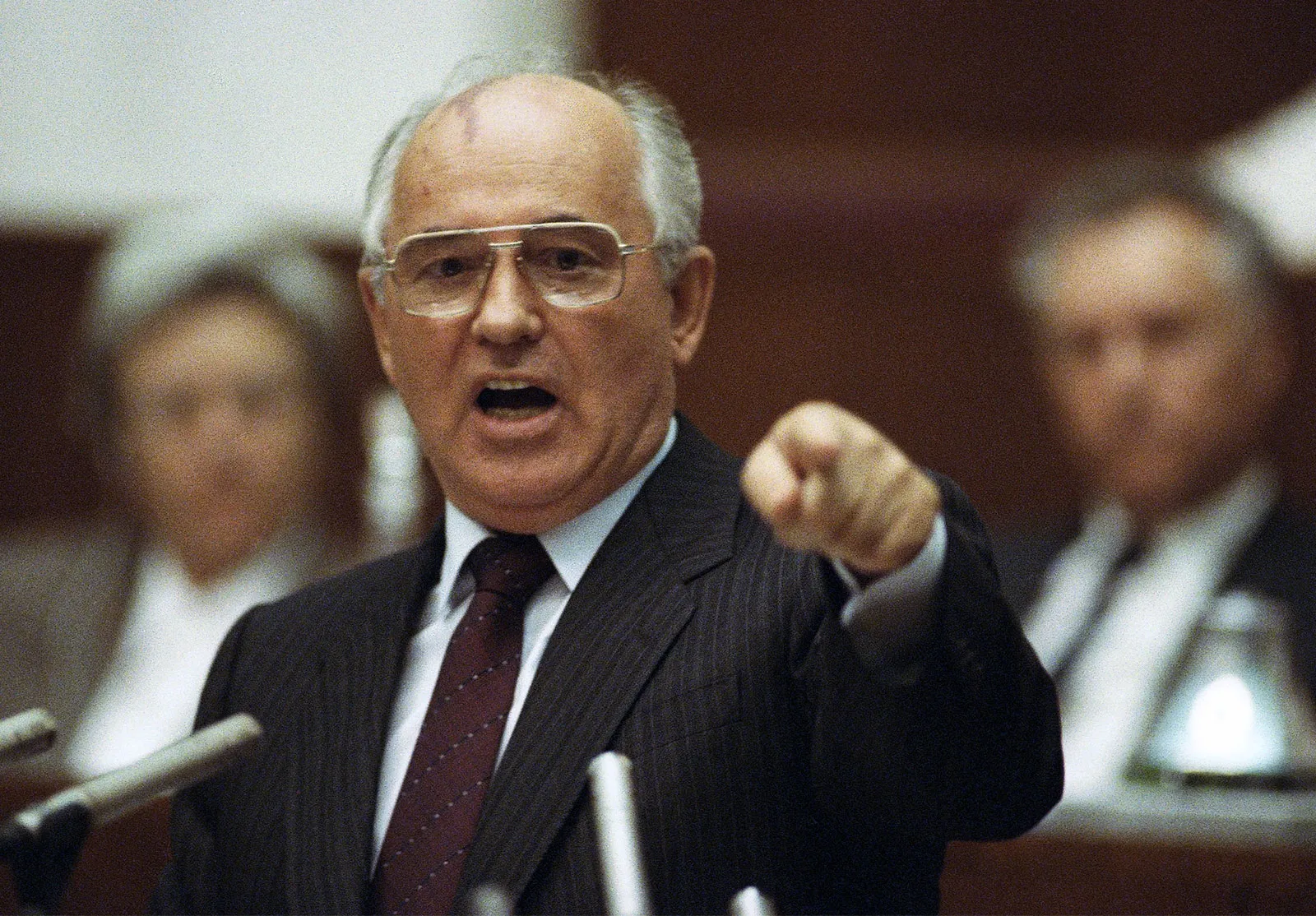The death of Mikhail Gorbachev, at the age of 91, has revived memories of a remarkable and optimistic period in Europe that stands in contrast with the crisis brought about by Russia’s invasion of Ukraine. Political Editor Nick Powell pays tribute to a man who had the courage to trust the people.
When increasingly elderly Soviet leaders died in swift succession in the 1980s, we became used to the formalities of their state funerals before their ashes were interred in the Kremlin Wall. They were invariably hailed as ‘continuators of Lenin’s great cause’.
Lenin’s great cause was Soviet power, so we cannot expect to hear the same phrase when Gorbachev is laid to rest next to his wife, Raisa. Such was Mikhail Gorbachev’s relative youth that the last leader of the USSR was the only one to outlive it.
He presided over the end of the Soviet Union because he was unwilling to resort to force on the ruthless scale that its survival required. In part, that was because he knew that it had been economically defeated. He broke with the past by allowing himself to be filmed talking to people during the kind of informal visit then commonplace in western democracies (though more carefully controlled nowadays). “You pretend to work and we’ll pretend to pay you”, he told some workers unenthusiastically repairing a road.
That very barbed joke was somewhat lost at the time, when the mere sight of a Soviet leader interacting with ordinary citizens was enough to amaze television viewers from Kaliningrad to Vladivostok. Gorbachev’s natural charm wasn’t enough of course, as he found when he faced a coup led by Communist hardliners, followed by the decision of the Presidents of Russia, Ukraine and Belarus to dissolve the Soviet Union.
For a while, it had carried him a long way very quickly. He was talent-spotted not just by the Politburo but in the West as well. His first visit to Margret Thatcher’s Britain was when he was officially no more than the chair of an agriculture committee. An invitation from the equivalent body at Westminster was engineered.
One of the Conservative MPs lined up to dine with him was the Ukrainian-born Stefan Terlezki, who understood Russian but was reluctant to speak it. “That’s nothing, let’s speak Ukrainian” was Gorbachev’s response, totally disarming Terlezki by reciting poetry in that language.
It’s a style unlike any previous Russian leader before or since. Mikhail Gorbachev was one of the outstanding statesmen of the so-called short twentieth century, which began with the First World War and ended with the demise of the Soviet Union.
Most of the leaders whose names have echoed down the decades held office in time of war, whether they are remembered with admiration or loathing. Gorbachev is admired around the world but loathed by some in Russia for having chosen a path of peace, for believing that what people cannot be persuaded to do, they should not be forced to do.
It ought to be a lesson for our times but it’s one lost on some world leaders, not least the present occupant of the Kremlin.





















